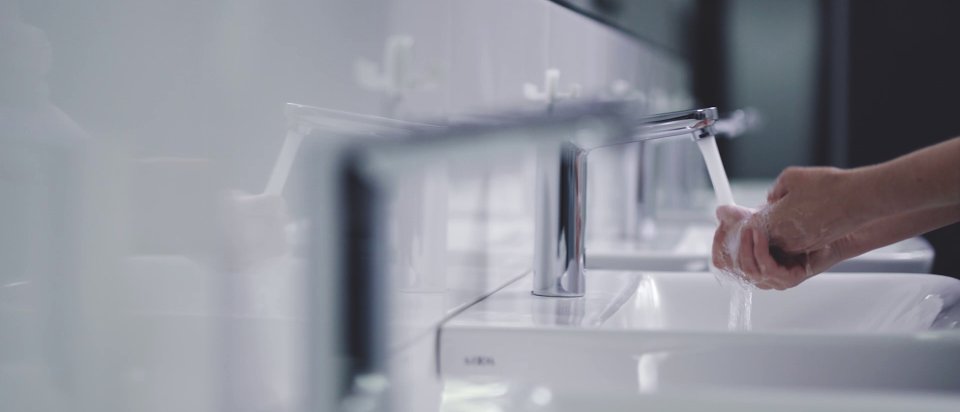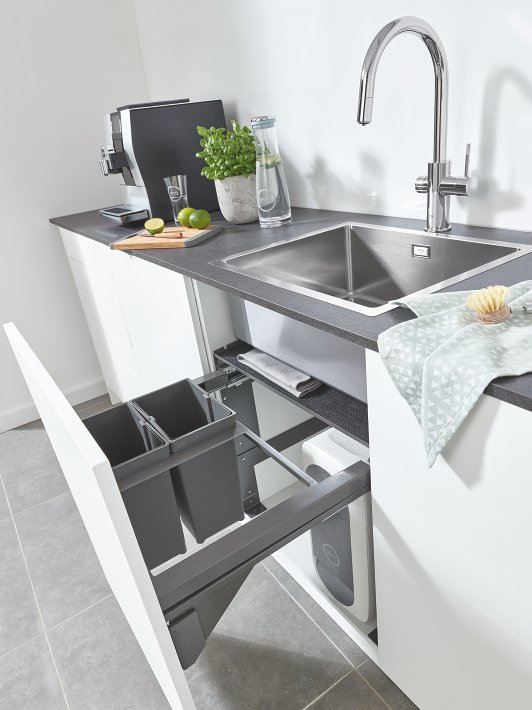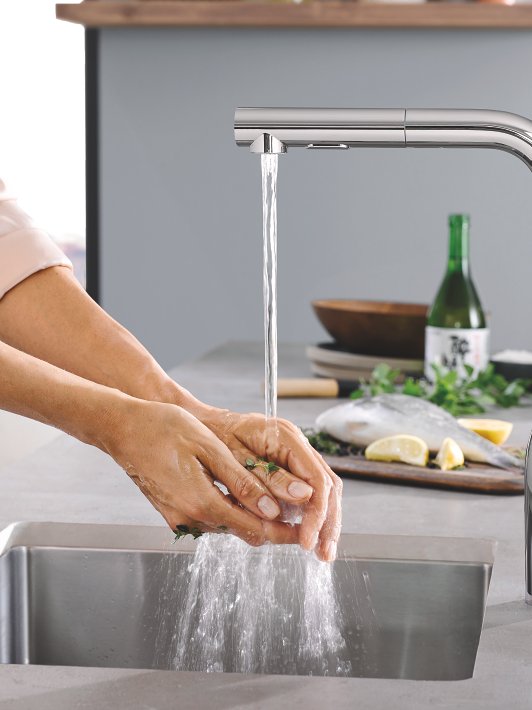
HYGIENE RULES FOR A CLEAN KITCHEN

The kitchen is the centre of social interaction. It’s where the family cooks together, where Sunday lunch is prepared for guests, and plenty more besides. At the same time, however, the kitchen is the perfect breeding ground for germs.¹ To prevent any upset stomachs, there are a few hygiene rules you should follow in the kitchen. These tips help you to keep the kitchen area and its utensils clean.
From being harvested, transported to the supermarket, then being bought and stored in your home, food products have a long way to go before they land on your plate. It's no wonder all sorts of germs start settling on them. The German Federal Ministry of Food and Agriculture (BEL) states that bacteria, fungi, viruses, and parasites do not just upset your stomach. These germs can also trigger an unpleasant infection in some cases, and in the worst case, can lead to dangerous food poisoning.² When you buy fresh food, it’s crucial that you store it properly. You can read more about this in our article on food hygiene.
Further information about kitchen hygiene is available as digital publications from the Federal Ministry of Food and Agriculture at bmel.de.
HYGIENE RULES FOR THE KITCHEN
Enforcing hygiene rules in the kitchen help to stop germs from getting into food or being transferred between people. The Federal Institute for Risk Assessment (BfR)³ and the Federal Office of Consumer Protection and Food Safety (BVL)⁴ advise following these hygiene rules for the kitchen:

• Clean kitchen utensils and work surfaces: Clean all used appliances, cutlery, crockery, cutting boards, and worktops immediately after cooking.
• Wash on hot: Use clean, warm tap water and detergent when doing the washing up by hand. For a more effective clean, wash in the dish washer at a minimum temperature of 60 °C.
• Cleaning utensils: Replace sponges and cloths regularly since bacteria multiply quickly in damp environments. Cleaning brushes are therefore more practical than sponges. You should use separate cleaning utensils for the kitchen floor and worktops.
• Dish cloths: Dish cloths should be washed frequently at 60 °C. Like cloths, they also dry better when spread out. The remains of highly germ-contaminated food such as raw meat should be wiped away with something disposable (e.g. kitchen roll) rather than a dish cloth.
• Waste: Since all dirty food leftovers end up in the rubbish bin, bin liners should be changed frequently and the bin cleaned once a week.

• Refrigerator: Germs aren't even deterred by low temperatures. Therefore, it's necessary to clean the inside of the fridge from time to time. In the case of mould, however, you have to take immediate action.
• Pets and pests: It's best to keep pets out of the kitchen as well as insects, mice, and any other uninvited guests that are fond of food and could therefore transmit germs. Sometimes even a clean kitchen isn't enough to stop them.
• Wash your hands regularly: Whether you've just wiped the worktop or filled the dish washer, always wash your hands thoroughly after finishing a task.
Complete cleaning: Germs often stick to cooker knobs, fridge handles, and kitchen doors as well as to dish washers, storage containers, drawers, and taps.
Our GROHE tip: Kitchen mixer taps can cause germs to spread even more. Sensor taps, on the other hand, are touch-free so they reduce the risk of germ transmission even further. You will find corresponding models in our catalogue.